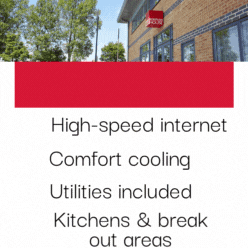Tried & Test: Hyundai i30
TGtS' resident Jeremy Clarkson, James Goodenough tries and tests the Hyundai i30.
For years Hyundai and others like it had reputations for creating vehicles which may have offered a good price, but were let down by unimaginative styling and poor quality. But since then, Hyundai has come through leaps and bounds, and a fine example of this is the Hyundai i30.
For starters, the Hyundai i30 has a sharp and premium look, combined with immense practicality, class-leading safety, and value for money, making it worthy of not only competing with the best in class, but surpassing them too, with the formerly all-conquering Ford Focus firmly in it's sights. So in order for the i30 to win over the Focus's customers, it needs to offer all that the Focus does, but go that extra mile. Fortunately, it does.
Firstly, the i30 like the bulk of medium-sized cars, comes in a range of different body styles: a 3-door hatchback, a 5-door hatchback, and an estate. That's pretty standard stuff in this segment, but it shows that Hyundai are keeping up with the established players. This is backed up by a five star Euro NCAP safety rating, due to its highly robust and durable body, and its vast array of safety features such as six airbags, and active stability control. Again, on a par with the more established rivals.
It also comes with a range of frugal and efficient engines, from a flexible 1.4 petrol, to a powerful and economical 1.6 diesel, which when mated to Hyundai's six-speed gearbox provides the driver with more than adequate response, and excellent fuel consumption too. This is also complimented by a stop/start system, which not only saves fuel when in neutral, but it also means that if/when you stall, you can just put the clutch down in neutral and it'll start again without faffing about. But it is highly unlikely that you will stall, because the gear changes are smooth and effortless, therefore not only being economical, but also increasing driver comfort too.
Speaking of comfort, the i30 not only has a responsive engine that is so beautifully quiet at cruising speed, but its complimented by sharp and crisp handling, with a supple yet firm suspension, meaning that it copes with bends supremely well, bumps are well absorbed, and its always totally composed at speed.
Then you have the i30's abundance of features, many as standard depending on which trim level you get, that match its more 'premium' rivals' which have many of them as optional extras such as: 16" Alloy wheels, Bluetooth® connectivity with voice recognition, rear parking sensors, dual-zone climate control, automatic headlights, rain-sensing front windscreen wipers, and a device for altering the heaviness of the steering, so if you want a relaxing, minimalist drive, or a taxing yet involving drive, then you're well catered for; and this is of course including the usual staple of luxury features like air conditioning, electric windows and heated seats. To add to the i30's mastery, also all of its features are easy to access from behind the wheel, complimented by a sharp design, and impeccable quality.
In terms of practicality the i30 is up there with the best of them: it has plenty of head and legroom in both the front and rear, so anyone over six feet can drive it with ease and comfort; the boot is easy to access, and at an ample 378 litres, it is both bigger than the Ford Focus and the VW Golf. With the seats folded down it extends to an impressive 1316 litres, so if you've bought a lot from Ikea, the i30 is capable of ferrying it home afterwards. Then of course there is the scattering of cubbyholes in the cabin as well, so anything small that needs a place, like keys, sunglasses or mints, will have a place to reside, freeing up your pockets and making the drive a more enjoyable experience.
But now for the Hyundai's best asset: its price. The middle of the range 1.4 costs just £16000 pounds, which significantly undercuts its rivals from Ford and VW which have their medium-sized cars at more than £18000 for their bottom of the range cars that are bereft of the features that the Hyundai has in abundance.
After a deposit of £4051.50, it would cost £199 p.c.m for 23 months, with an optional payment of £6672.50 at the end, meaning that it is easy to afford the monthly payments; then you'll incur no interest charges and 0% APR, which is great for people on tighter budgets, or people who just like a good deal.
To add a cherry to an already exquisite cake, the i30 like all Hyundais, is offered with a 5 year/unlimited mileage warranty, which is especially good for fleet car buyers, or anyone who is likely to do a lot of travelling; as well as 5 years of free breakdown cover, and 5 years of free annual 'check ups'. With all of these financial incentives in mind, it really makes the Hyundai a very attractive proposition indeed.
To sum up, the Hyundai i30 is one of a vast armada of cars that have propelled Hyundai from a maker of cheap, vague, and insipid cars, to a manufacturer of cars that are stylish, reliable, and value-for-money that can appeal to a whole multitude of different drivers. With a plethora of features like this, it will dispel the myth that Hyundais are cheap for a reason, and it will have the established players quaking in their boots.





















